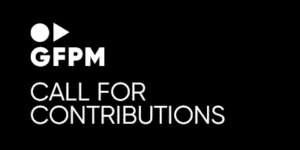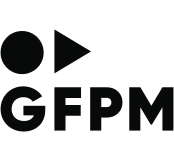German Society for
Popular Music Studies
German Society for Popular Music Studies
to the entire spectrum of popular music and its culture.
Since 1984, the independent German Society for Popular Music Studies
has established the strongest network of members in the
German-speaking world for this purpose. We publish our research primarily
in the established series Beiträge zur Popularmusikforschung and
the online publications SAMPLES.
News

ANNUAL CONFERENCE: Call for Papers
October 16, 2025 |
36th Annual Conference of the German Society for Popular Music Studies
Leuphana University Lüneburg
October 16–18, 2026
Observation is a constant condition for popular music. From the watchful eye of a state
censor to the analytical gaze of a record label’s A&R department, and from the peer
review of an online fan community to the automated tracking of a streaming platform,
music is continually shaped by being seen and heard. While such observation often
imposes limits, it also creates new possibilities for action. This conference asks: What
do musicians, industries, and audiences do under observation?
We aim to explore the spaces for agency, the Handlungsräume, that emerge between
the pressures of control and the drive for expression. Recent developments in the USA,
for instance, arguably sharpen global trends of censorship and cancel culture in
previously unpredictable ways. Control can manifest as overt censorship, the subtle
nudges of algorithms, the economic discipline of the market, or the social policing of
authenticity within a scene. Yet, in response, new forms of creativity, resistance,
subversion, and identity play consistently appear. However, further responses to
observations of practices and hierarchies can also include the creation of safe spaces,
awareness activities, and creative spaces for action with opportunities for reflection and
self-determination. This conference invites contributions that examine this dynamic
tension across different historical, cultural, social, economic, and technological contexts.
We encourage proposals that address, but are not limited to, the following questions:
- How have artists and audiences navigated state surveillance or censorship in different political regimes?
- What forms of economic and industrial observation, from chart-making to market research, have shaped musical production and value?
- How do technologies, from the metronome to machine learning, create new forms of both discipline and creative freedom in music-making?
- In what ways do social groups, subcultures, or fan communities observe regulate their members’ behaviour, tastes, and identities?
- How is music implicated in practices of self-monitoring, whether for well-being, artistic improvement, or personal branding?
- How do artists and listeners develop tactics of resistance, invisibility, or playful subversion in response to being monitored?
- What forms of care, responsibility, and awareness can emerge from practices of observation?
We explicitly welcome submissions from early-career researchers and proposals for a
variety of formats beyond traditional papers. These include workshops, roundtable
discussions, lecture-performances, audio papers, film screenings, and other
experimental or interactive contributions.
Please submit an abstract of no more than 250 words and a short bio-note (max. 80
words) by January 10, 2026, to gfpm2026@popularmusikforschung.de.
A conference fee will apply. Early-career researchers and participants with limited
financial resources may apply for grants to support travel and registration costs. Further
details will be announced in due course.
We look forward to receiving your contributions and fostering a rich discussion on this
urgent topic.
Mission

Benefits of Membership
We offer numerous services to our members in the GFPM network. In our newsletter we communicate current announcements, job offers or calls for national and international conferences or publication projects. We also inform regularly about new publications. Members of the GFPM receive the current issue of the Beiträge zur Popularmusikforschung.
With their membership, our members not only enable this important networking, but also provide our early-career researchers with versatile support from the GFPM. This support is an important pillar of our work and a fundamental part of our mission.

Diversity
Popular music research is dedicated to a wide field of sounds, cultural texts, artifacts, contexts and practices. In order to analyze, discuss and communicate these, our association brings together a wide variety of methodological and theoretical approaches. Experts from the field meet scholars from numerous disciplines, from musicology and music education to cultural studies, sound studies, linguistics, journalism, journalism, and music business research.

International Perspective
For us, popular music research is determined by international cooperation. German and English are our publication and conference languages. We are connected to research organizations worldwide and invite international speakers to promote exchange and joint progress in the study of popular music.

Independence and commitment
As a non-profit association, we are financially, substantively and politically independent. We are committed to a cultural-political strengthening of the study of popular music, which opposes racist, sexist, chauvinist and nationalist tendencies.
Duties
Promotion and support
The support of scholars in the early career phase is anchored in our statutes and is practiced in a variety of ways: Every year, we award the Early Career Best Paper Award in the field of popular music research. During the sometimes difficult start of an academic career, we offer financial support for travel and publications from a support fund. We organize workshops and international post graduate summer schools. For many young researchers, our publication series offer a first publication opportunity.
Network and Science Hub
Through its transdisciplinary network, the GFPM offers an access point to various national and international experts, whom we are happy to refer to journalists, for expert opinions, legal expertise, cultural policy work or research assignments. Current results from popular music research are documented and actively communicated by the GFPM.
Contact US
Gesellschaft für Popularmusikforschung / German Society for Popular Music Studies e. V.
c/o Peter Klose
Hochstr. 18
44149 Dortmund
Germany
Tel.: +49 (0)231 140348
Mail: kontakt@popularmusikforschung.de
